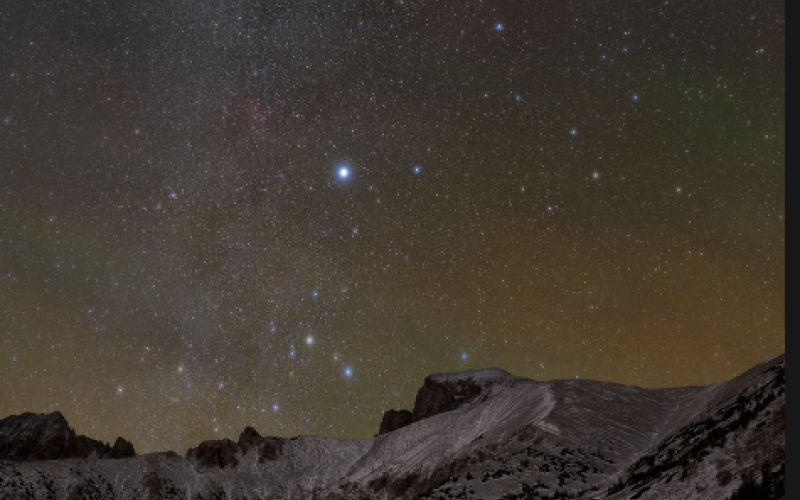Experts Share Great Basin's Dark Skies

I remember the first time I saw the stars in Great Basin. Driving back home during a new moon, I pulled over on the side of the road and just stared breathlessly. The sky in every direction was brilliantly carpeted with more stars than I could see in an entire year in my current home city of Los Angeles.
Now this was home, the place I would live and work for the next few months.
My time at Great Basin was undeniably one of the highlights of my grad school experience. As a Scientist-in-Park, my life settled into a routine of working alongside the astronomy rangers to share the very same show-stopping night skies to Park visitors I had gazed at breathlessly. Visitors came and went in an endless rhythm, and the night skies moved through their own slow progression as weeks gave way to months.
For the first time in my professional astronomy career, I felt connected to the night sky, the constellations, and their stories in a completely new way. I understood the wonder that inspired generations across centuries and millennia. I had a unique chance to connect with people outside of the often insular world of academia - to tell people about my research passions, and excite them about the universe around us, as we stood in one of the darkest night sky locations in the entire country.
One of the most unique aspects of my time in the park was the ability to interface and work with the Great Basin Foundation’s Great Basin Observatory, a research telescope located within the park boundaries. With observatory staff, I performed a refitting of some of the telescope hardware to improve the function of the telescope. Since the re-fitting, we’ve worked toward getting the spectrometer functional. We were able to point the spectrometer to the night sky and collect some of the first astronomical data. We are continuing to work on developing a research pipeline for the spectrometer so it can be used on a regular basis. We are making large steps toward increasing the research capacity and output of the Great Basin Observatory and have imminent plans to increase the user base and diversity of research targets.
Great Basin is unique, as one of the most remote places in our nation it still bursts with opportunities and potential to share its uniqueness with new audiences. Overall, in my months working as a Scientist and then Volunteer in Park, I engaged in a wide range of outreach and scientific activities, forming a connection with the land, the night skies above, and the mission of the park and the Foundation. Although I am not currently physically located at the park, I am excited that I can remain engaged with the Foundation and the Observatory, working toward increasing its utility and reach.
Tess Marlin
2024 Scientist in the Park
Read more about Tess here
Great Basin National Park Foundation funds the Scientist in the Park program at Great Basin National Park and funds and manages the Great Basin Observatory.
